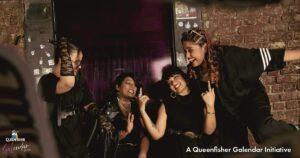Humla is a region, tucked safely somewhere in the far northwest of the mountainous country of Nepal. The boon and the bane of Humla is that it is not easily accessible but, nevertheless, offers some of the most breathtaking views.
In Simikot, the district headquarters located at one of the highest regions of the world, lives a secluded mountain community, subject to poverty, harsh climate and plagued by superstition.

In this community, a menstruating woman is exiled from home and is made to stay in animal sheds or goths. Not only that, a woman is made to stay in a goth till upto 20 days after childbirth.
Alice Carfrae, who was shooting a documentary in Simikot writes for Broadly. and narrates how these women do not only undergo the discomfort of menstruation but conditions far more horrifying than we can imagine. This unfortunate practice is known as chaupadi.

“The geographic remoteness means that traditions in this place remain strongly intact” writes Carfrae. She encountered 12 teenagers tucked inside blankets, who have been banished from their homes for the duration.

One can gather that since this is an age-old practice, the members of the community probably do not see the unfairness, insensitivity and what is clearly the regression of the practice. This banished group more or less resembled a sleepover, complete with “Nepali pop on their mobiles, singing, gossiping, and bitching”.

Romali a 16 year-old, tells Carfrae that the goth is shared by whoever is menstruating as it’s safer because rape is a serious risk when practicing chau as many women sleep alone and unprotected, ignorant of the power and irony of her statement.

As menstruating women are not allowed inside the house, they take up hard labour that involves collecting woods and carrying them. Sometimes these bundles or baskets are as heavy as the girls carrying them.
As Carfrae points out “These conditions take their toll: they make women more vulnerable to health problems such as respiratory diseases, prolapses, and bent spines due to the heavy loads.”
The average life expectancy of women is 53 here.

Then there are women who even give birth in these dingy, grimy goths leading to the death of the infant. But that is slowly changing as midwife Gita Lama informs Carfrae because of a new government scheme that pays women roughly ₹1,000 if they give birth in a clinic. So ingrained is the fear of violating the custom that lot of women still go back to these goths after being released from the clinic.

Twenty-two year-old Laxmi is one of them but her husband does not want her to live in a goth. But she does anyway. “If we do not practice religion, the gods will bring us trouble. I have no choice but to worship” she tells Carfrae. “If we ignore the doctors’ advice we will still survive, but if we disobey God, God will punish us. God is more powerful than man” she further adds.

Although not all women practice chau, it is reinforced through myth and storytelling, says Carfrae.
It seems like a long uphill climb to even begin educating the members of this community about menstruation but as they say, nothing is impossible.
You can read the entire story here on Broadly.
All images sourced from Broadly.

















